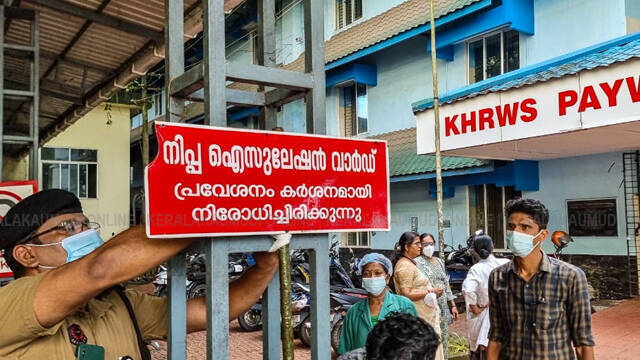

Kozhikode is once again in fear after two people died in the hospital with rare symptoms within two weeks due to Nipah disease. The deceased's 10-year-old son and relatives are among more than half a dozen people who are hospitalized with Nipah symptoms. There are about 200 people including hospital staff in the contact list. It is very comforting that the health department will be able to quickly adopt measures to prevent the spread of this deadly disease due to four times the experience. It is because of old experience that we were able to take precautionary measures when we suspected that the death was due to Nipah. Not only in the case of Nipah but in the face of any epidemic, it is necessary to face it with determination. There have been many instances where the state's public health systems have proved capable of doing so. Nipah disease was a new experience in Kozhikode district for the first time in 2018, but we were able to take comprehensive measures to prevent the disease very quickly. Seventeen lives were lost that day. The war-like preparations led by former Health Minister KK Shailaja in fighting Nipah were praised even at the international level. Later, this deadly disease came three more times, but the reason why it did not wreak much havoc was because of strong preventive measures. The present trial period should also be bravely overcome. People should not panic and follow the guidelines given by the government and face this extraordinary situation with caution.
This time too it took the Pune Institute of Virology itself to confirm the presence of Nipah. The fact that the Advanced Institute of Virology in Thonnakkal, Thiruvananthapuram is still not fully functional is a big shortcoming. It should be noted that the institute at Thonnakkal was established as the most advanced testing centre in the country. The services of this institution are of utmost importance in the face of the increasing presence of various infectious diseases in the state. Yet when deadly diseases like Nipah break out, the situation persists where the sample has to be sent to Pune and the results have to be waited for. It is the state government and the health department that must show determination in this matter.
It is reassuring that the Nipah virus does not spread between humans as quickly as Covid-19. The disease can spread from the infected person to others. It has been discovered that eating fruit bitten by infected bats and touching their secretions can lead to the disease. Comprehensive studies and preventive measures have become necessary in the context of the recurring presence of this deadly disease. Major changes in habitats are driving Nipah-infected bats to migrate further into the land. In Kerala, where there are no boundaries between forest and land, there is a high possibility of the spread of infectious diseases like Nipah. More care is also needed against bats.